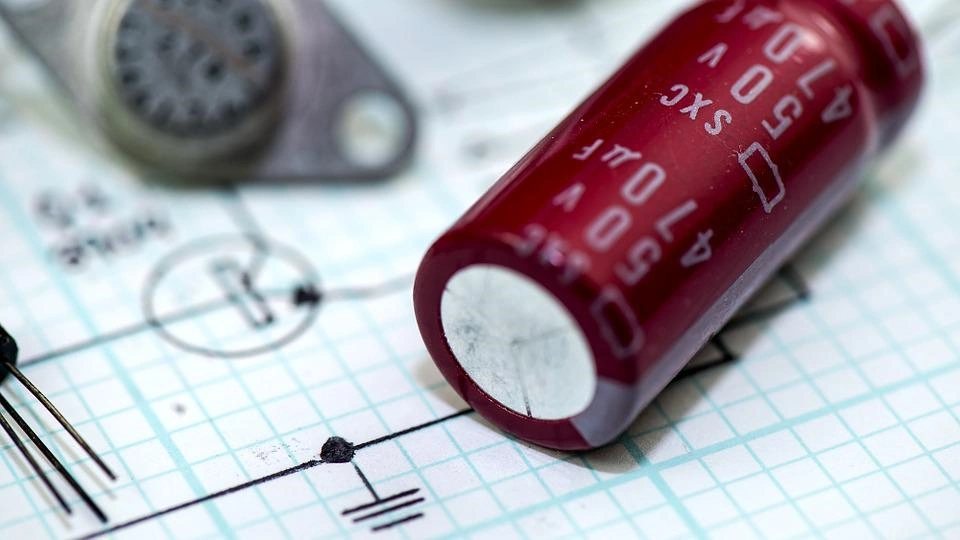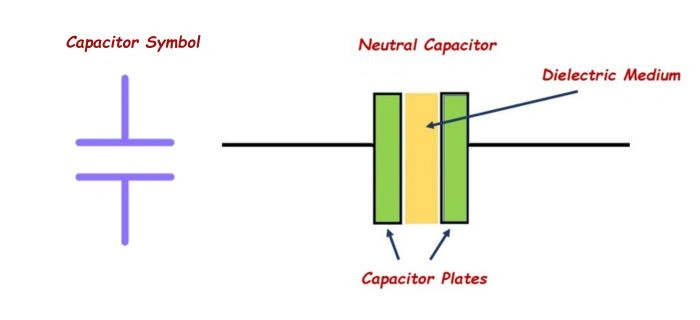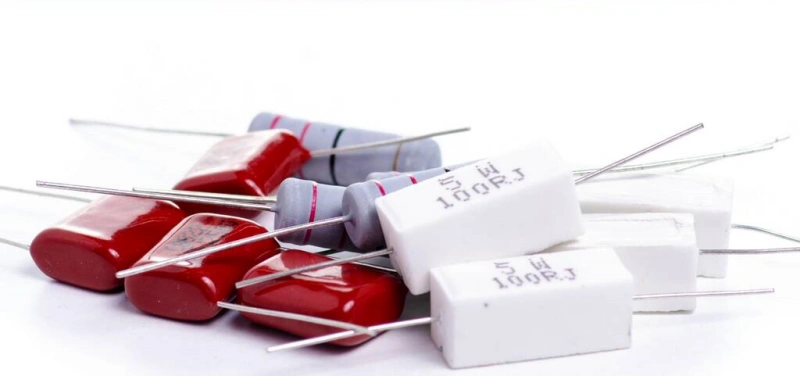Welcome to our Comprehensive Guide for Beginners on fixed capacitors. These essential components store and release electrical energy, helping to manage voltage and current in various circuits. Unlike variable capacitors, fixed capacitors have a predetermined capacitance, making them ideal for applications where stability and precision are key.
Whether you’re designing power supplies, filters, or signal processing circuits, understanding fixed capacitors will elevate your projects. Get started today—quote capacitors from Weishi for unmatched quality and performance!
What Is a Fixed Capacitor?

Fixed Capacitor Definition:
A fixed capacitor is an electronic component designed to store electrical energy in an electric field. Unlike variable capacitors, which can adjust their capacitance, a fixed capacitor has a constant capacitance value. It is commonly used in various circuits to control voltage, smooth power supply, and filter signals.
Fixed vs Variable Capacitors:
The main difference between a capacitor fixed and a variable capacitor is adjustability. A fixed capacitor maintains a constant capacitance value, while a variable capacitor allows you to change the capacitance by turning a dial or screw. Fixed capacitors are reliable and widely used in most electronic applications for their stability.
Basic Structure of a Fixed Capacitor:

A capacitor fixed typically consists of two conductive plates separated by a dielectric material. The plates store electrical charge, while the dielectric material prevents the flow of direct current (DC). The capacitor’s capacitance depends on the surface area of the plates, the distance between them, and the type of dielectric material used.
Function of a Fixed Capacitor:
The primary function of a fixed capacitor is to store and release electrical energy. It smooths voltage fluctuations in power supplies, filters out noise in signal processing, and helps in timing applications. Fixed capacitors play a vital role in improving circuit performance by stabilizing electrical signals and preventing energy loss.
Fixed Capacitor Types

Ceramic Capacitors
Ceramic capacitors are known for their small size, durability, and cost-effectiveness. They are widely used in electronic circuits for filtering, decoupling, and noise reduction. Their stable performance across a wide temperature range makes them ideal for applications in consumer electronics, automotive systems, and communication devices.
Electrolytic Capacitors
Electrolytic capacitors have a higher capacitance per volume compared to other types, making them perfect for power supply filters and energy storage applications. They are polarized, meaning they must be installed in the correct orientation. Their high capacitance and ability to handle larger voltage changes make them essential in power electronics and audio equipment.
Tantalum Capacitors
Tantalum capacitors offer stable capacitance and low leakage current, making them suitable for high-performance applications. Known for their reliability and compact size, they are commonly used in space-sensitive devices like smartphones, medical equipment, and high-frequency circuits. Their robust construction allows them to perform well in harsh conditions.
Film Capacitors
Film capacitors, such as polyester and polypropylene types, offer high accuracy and low loss, making them ideal for signal processing and high-voltage applications. Polyester capacitors are commonly used in consumer electronics, while polypropylene capacitors are preferred in high-power applications due to their superior performance in high-temperature environments and low self-inductance.
Mica Capacitors
Mica capacitors are known for their superior stability and precision. Unlike other fixed capacitors, they use mica as the dielectric material, providing excellent performance in high-frequency applications. These capacitors are commonly used in RF circuits, precision instrumentation, and military-grade electronics where reliability and exact specifications are critical.
How Fixed Capacitors Work?
The Role of a Dielectric Material in Storing Energy:
A fixed capacitor stores energy in an electric field created between two conductive plates. The dielectric material, which is non-conductive, sits between these plates and prevents current flow while allowing the capacitor to hold electrical energy. The type of dielectric material, such as ceramic or polyester, determines the capacitor’s overall performance and capacitance.
Charge Storage and Voltage Behavior
When a fixed capacitor is connected to a voltage source, it stores electrical charge on its plates. As the capacitor charges, voltage across the plates gradually increases until it reaches the supply voltage. The amount of charge stored depends on the capacitance value and the applied voltage, with higher capacitance allowing more charge storage.
Charging and Discharging Cycles
During charging, the fixed capacitor accumulates charge, and its voltage rises. When the power source is disconnected, the capacitor discharges its stored energy, releasing the charge through the circuit. This charging and discharging cycle occurs repeatedly in many applications, providing consistent energy storage and release in electronic circuits.
Applications in Filtering, Coupling, and Decoupling in Circuits
Fixed capacitors are crucial for filtering, coupling, and decoupling in electronic circuits. They smooth out voltage fluctuations in power supplies, filter unwanted noise from signals, and isolate different parts of a circuit to prevent interference. These applications ensure reliable and stable performance in a wide range of electronic devices.
Key Characteristics of Fixed Capacitors
Capacitance
Capacitance measures a fixed capacitor’s ability to store electrical charge. It is typically expressed in Farads (F) or microfarads (µF). The larger the capacitance, the more charge the capacitor can store. Choosing the right capacitance ensures a capacitor can handle the required charge in your circuit, influencing performance in energy storage and signal processing.
Voltage Rating
The voltage rating of a fixed capacitor indicates the maximum voltage the capacitor can safely handle. Exceeding this voltage can cause damage or failure. It’s essential to match the capacitor’s voltage rating with the voltage in your circuit to ensure safe and reliable operation. Always select a capacitor with a voltage rating higher than your circuit’s maximum operating voltage.
Tolerance and Stability
Tolerance refers to how much the actual capacitance can vary from the labeled value, and it is typically expressed as a percentage. Stability relates to how well the capacitor maintains its capacitance under varying conditions like temperature and voltage. A low tolerance and high stability ensure consistent performance, making fixed capacitors reliable in precision applications where accuracy matters.
Fixed Capacitor Application
Power Supply Circuits
Fixed capacitors are crucial in power supply circuits, where they smooth out voltage fluctuations. They help stabilize the power, ensuring a steady DC output. Capacitors filter out noise and prevent voltage spikes, providing clean power to sensitive components in devices like computers and power supplies.
Signal Processing Circuits
In signal processing, fixed capacitors filter and couple signals to maintain clarity and prevent distortion. They block unwanted frequencies while allowing desired signals to pass through. These capacitors are used in various devices, including radios, amplifiers, and communication equipment.
Timing Circuits
Fixed capacitors play a vital role in timing circuits by controlling the charge and discharge cycles, which set the timing intervals. They are commonly found in oscillators, clocks, and other timing mechanisms. Capacitors ensure precise timing in circuits that regulate the operation of devices like timers and frequency generators.
Motor Start Capacitors
Motor start capacitors provide the extra boost of energy needed to start electric motors. They temporarily store energy and release it at the right moment to help the motor overcome initial resistance. These capacitors are essential in appliances like air conditioners, refrigerators, and power tools.
Audio Equipment
In audio equipment, fixed capacitors filter signals and ensure smooth audio transmission. They help eliminate noise and prevent distortion, resulting in clearer sound. Capacitors are used in equalizers, amplifiers, and crossover circuits to maintain high-quality sound performance in speakers and audio systems.
How to Choose the Right Fixed Capacitor?
Choosing the right fixed capacitor depends on several key factors. First, determine the required capacitance for your circuit, which dictates how much charge the capacitor can store. Next, select a voltage rating that matches or exceeds the maximum voltage your circuit will experience. Ensure the capacitor has a suitable tolerance for your application, as higher tolerance ensures greater accuracy.
Stability is also important; look for capacitors that perform consistently across temperature and voltage variations. Finally, consider the type of capacitor, such as ceramic, electrolytic, or film, based on the specific demands of your circuit, whether it’s for filtering, decoupling, or energy storage.
Conclusion
In conclusion, capacitor fixed are essential components in modern electronics, offering stability, reliability, and energy storage across a wide range of applications. Whether you need them for power supply circuits, signal processing, or motor starts, choosing the right fixed capacitor ensures your circuit performs at its best.
By considering factors like capacitance, voltage rating, tolerance, and stability, you can select the perfect capacitor for your needs. Ready to find the ideal fixed capacitor for your project? Explore our high-quality selection today and power your designs with confidence!
FAQ
What changes the charge on a fixed capacitor?
The charge on a fixed capacitor changes when a voltage is applied across its plates. As the voltage increases, the capacitor stores more charge. When the voltage supply is removed or altered, the capacitor discharges, releasing its stored energy. The capacitance value, which is constant in fixed capacitors, determines how much charge the capacitor can store for a given voltage.
What is the difference between fixed and switched capacitors?
A fixed capacitor has a constant capacitance value and cannot be adjusted after manufacturing. It is ideal for circuits where stable and predictable capacitance is required. On the other hand, a switched capacitor can change its capacitance value during operation by using external components or switches, offering flexibility in circuits that need variable capacitance, such as in tuning or adaptive filtering applications.
How do you test a fixed capacitor?
To test a fixed capacitor, use a multimeter with a capacitance measurement function. First, discharge the capacitor to avoid damaging the meter. Then, connect the multimeter probes to the capacitor’s leads and measure the capacitance. Compare the reading with the capacitor’s rated value. If the reading is significantly off, the capacitor may be faulty and needs replacement.
What are the advantages of fixed capacitors?
Fixed capacitors offer stability and reliability in electronic circuits. They are durable, easy to use, and require little maintenance. Because their capacitance is constant, they provide consistent performance over time, making them ideal for applications where precision and dependability are critical. Fixed capacitors are also cost-effective and widely available in various types and sizes for different needs.
Why would you need a capacitor?
Capacitors are essential for storing and releasing electrical energy in circuits. They help smooth out voltage fluctuations, filter unwanted signals, and store energy for later use. Capacitors are used to maintain signal integrity, power devices, prevent electrical noise, and enable proper functioning of timing circuits. Whether in power supplies, motors, or signal processing, capacitors are key to ensuring efficient and stable performance in electronic systems.